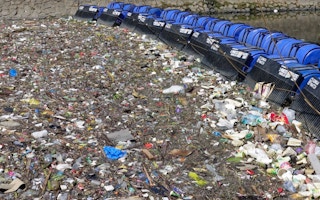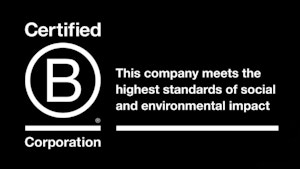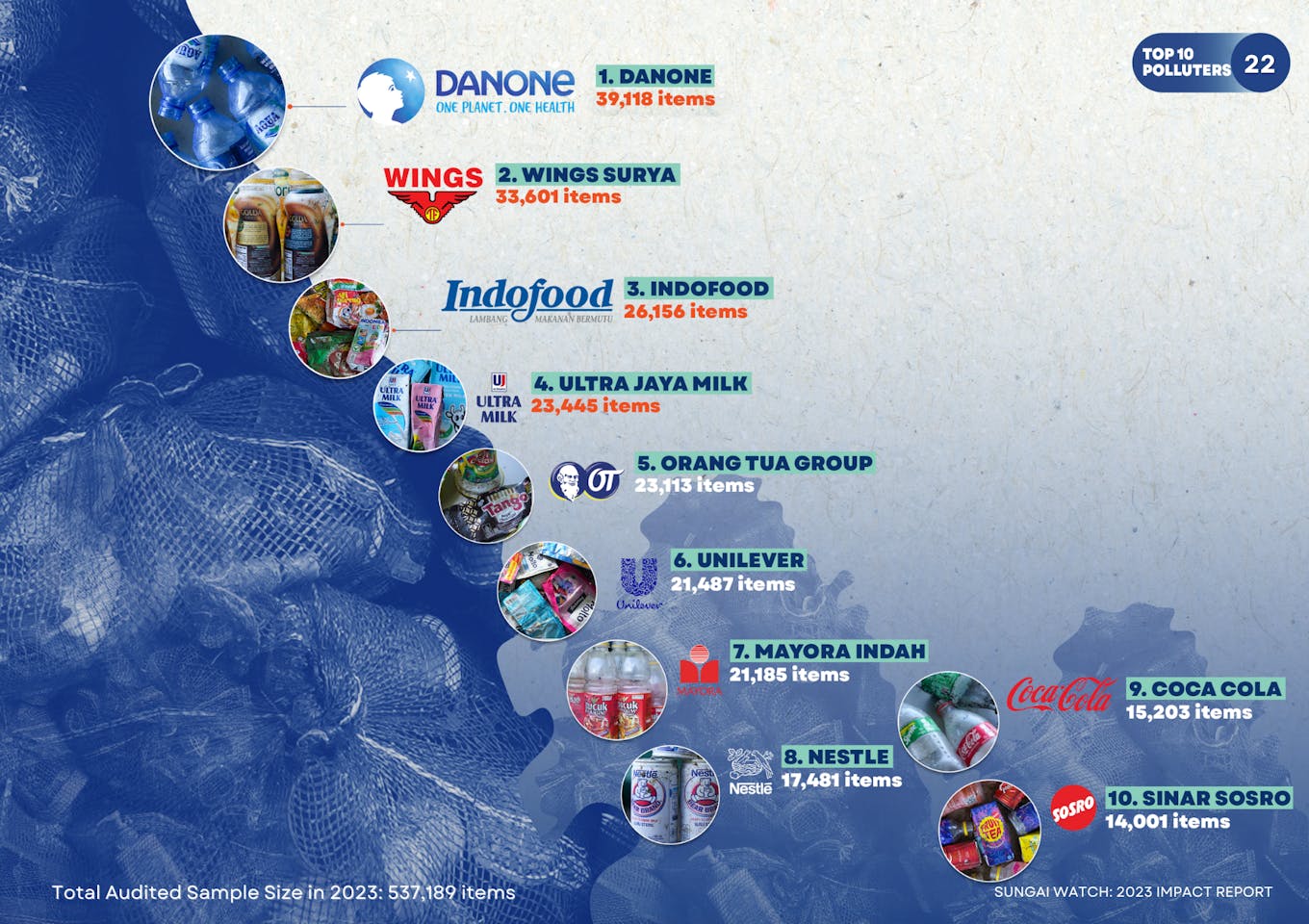B Corp-certified bottled water brand Aqua tops audit of Indonesia's biggest plastic polluters
Published on by Water Network Research, Official research team of The Water Network in Social
French consumer goods giant Danone’s bottled water brand Aqua is the most common type of trash found in Indonesian rivers, according to a litter audit by river clean-up NGO Sungai Watch.

A Sungai Watch river barrier in Indonesia. One quarter of all PET bottles chucked into Indonesian rivers are Aqua-branded. Image: Sungai WatchBy Robin Hicks
In addition Aquafina and Dassani both have a PH of 4.5- see attached Xcel sheet comparing bottled water brands from their own laboratory certified public data.
Aqua, a bottled water brand made by French consumer goods giant Danone, has topped a new ranking of Indonesia’s biggest plastic polluters.
A study of trash collected by Sungai Watch, a Bali-based environmental non-profit that deploys river barriers all over Indonesia to stop plastic debris from leaking into the ocean, found Aqua-branded single-use water bottles to be by far the most commonly littered items, followed by products made by Indonesian consumer goods firms Wings Group and Indofood.

B Corp movement secures first Singapore operations chief
Sungai Watch audited 537,189 pieces of rubbish collected from 268 river barriers in Bali and East Java last year, and published the data in its 2023 impact report.
Indonesia’s biggest river polluters [click to enlarge]. Image: Sungai Watch
One quarter of all polyethylene terephthalate (PET) bottles discarded into Indonesian rivers are Aqua-branded water bottles. Tea brand Mayora (15 per cent) and Coca-Cola (13 per cent) are also big contributors, and are listed in the ranking of top 10 polluters.
Only tea brand OT (19 per cent) contributes a higher proportion of plastic cups littering Indonesian rivers than Aqua (13 per cent), according to Sungai Watch’s data.
Eco-Business has approached Danone for comment.
In a sustainability commitment made in 2018, Danone pledged to remove more plastic from the environment than it uses by 2025. It also promised to increase the ratio of recycled plastic it uses to make its bottles to 50 per cent by 2025, targets that will prove difficult to meet as low oil prices bump up the price of recycled plastic.
The company has been awarded for its sustainability efforts, which have included a waste awareness and collection campaign #BijakBerplastic (“plastic wise”) and the creation of Indonesia’s first bottle made entirely from recycled plastic. Aqua is currently working with recycling companies in Indonesia to improve bottle collection efforts.
“Aqua are looking at options to support waste collection infrastructure, but at a very limited capacity compared to what they produce,” noted Alvaro Aguilar, head of logistics for Indonesian recycling firm Prevented Ocean Plastic.
Last week, another new report by global advocacy group the Center for Climate Integrity (CCI) called for plastic producers to be held accountable. The report said that plastic producers have known for more than 30 years that recycling is not an economically or technically feasible waste management solution.
Aqua was the first Indonesian company to be certified by B Lab, a London-headquartered certification scheme which rewards “beneficial corporations”, or B Corps, based on their social and environmental impact. Aqua attained B Corp status in 2018 and was re-certified in 2021. B Lab has faced scrutiny in recent months for enabling companies to greenwash.
Attached link
https://www.eco-business.com/news/b-corp-certified-bottled-water-brand-aqua-tops-audit-of-indonesias-biggest-plastic-pollutersMedia
Taxonomy
- Bottled Water
- Plastic Pollution
1 Comment
-
We will NEVER solve a problem by improperly assigning causes!! The COMPANY has NOTHING to do with the irresponsible behavior of the CONSUMERS!! PEOPLE POLLUTE!!! If you don't correct that problem, all the rest is just more WASTED money and effort!
1 Comment reply
-
If you believe that this will happen, The other approach is to make PET water bottles (single use plastic) illegal and to fine the producer.
-
